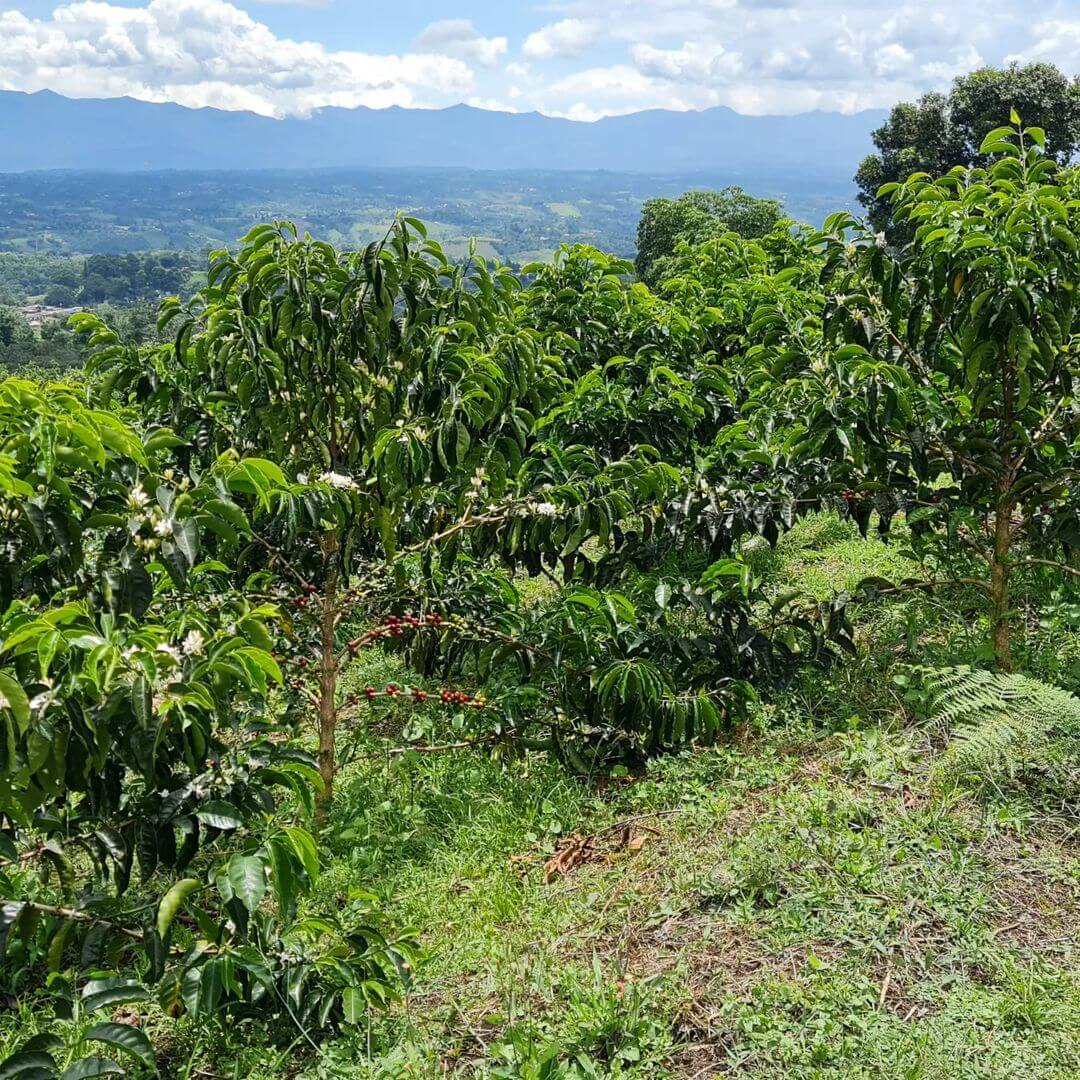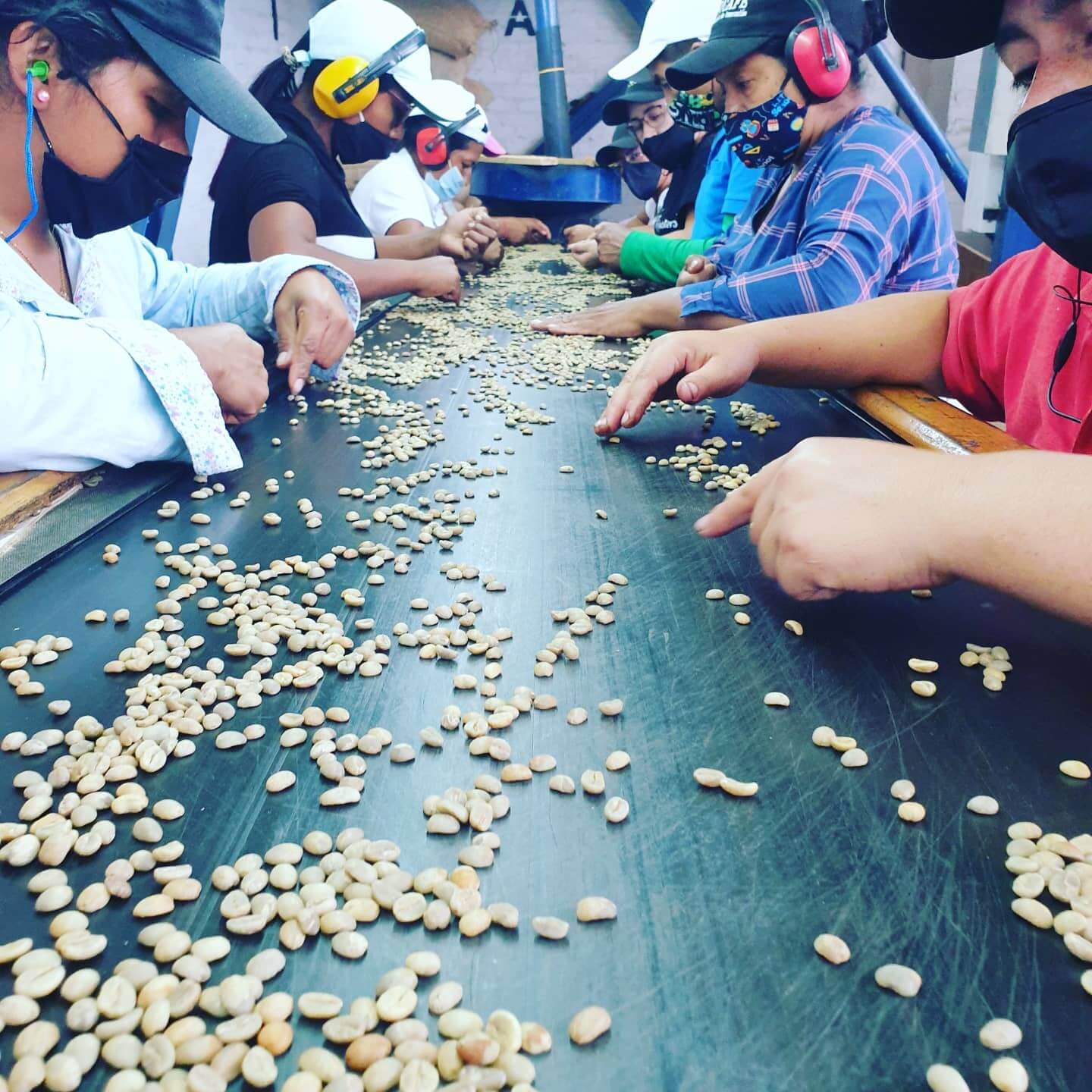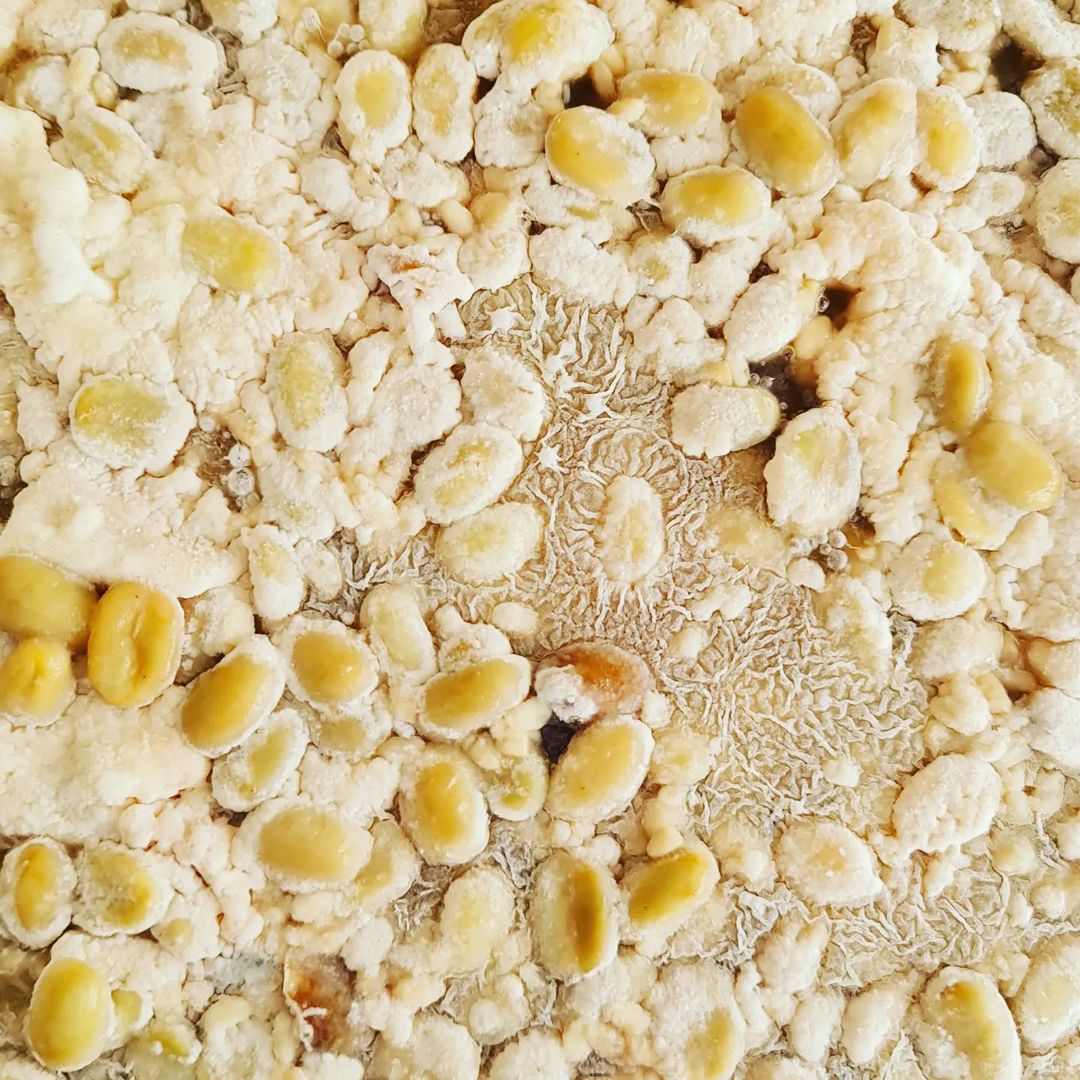We're very happy with our decaf classics, but this is something else. Autumn afternoons of coffee without limits have arrived with this Decaf Paraiso from Wilton Benitez. Quite simply, the best decaf we've ever tasted. Sweet aromas of cocoa and milk chocolate, a honeyed body with hints of caramel and brown sugar, and fruity cup flavors of plum, papaya and passion fruit. Quite an experience.
Granja Paraíso 92 is a farm that produces different varieties such as Java, Bourbon Rosado, Geisha, Pacamara, Caturra, Tabi, Castillo, Supremo and Colombia using highly innovative cultivation systems such as terraces, drip irrigation, shading and laboratory nutrition calculations, all aimed at producing a unique coffee that can be verified through the multiple awards obtained. Finca Paraíso-92 also has its own microbiology laboratory, quality laboratory and processing plant.
The processes applied to the different coffees begin with a strict selection, sterilization and characterization of the cherry and then begin with the first phase of controlled anaerobic fermentation, adding a specific microorganism for each process, then the coffee is pulped and subjected to a second phase of fermentation. When the second phase is finished, a process of sealing of the bean is carried out by means of hot and cold water impacts to improve the organoleptic conditions of the coffee.
Process
Wilton's main objective when processing this coffee is to preserve the volatile compounds within the beans. To achieve this, Wilton employs its established method of anaerobic fermentation combined with thermal shock, culminating in the "decaffeination" process using ethyl acetate, commonly known as Natural Sugar Cane Decaffeination.
The process begins with a meticulous selection of beans based on density and size, followed by sterilization of the beans using ozonated water and ultraviolet light. The coffee is then immersed in 90-degree water to enhance the sweetness of the beans, followed by depulping (removal of the skin). At this point, the fermentation process begins for 36 hours with Saccharomyces pastorianus yeast, followed by Washed and elimination of the mucilage. The beans are then mechanically dried for 46 hours at a constant temperature of 40 degrees Celsius.
Before decaffeination begins, the green beans undergo a steam treatment to remove the silver film, increase humidity and open the pores for easier caffeine extraction. At this stage, the coffee is immersed in ethyl acetate (E.A.) - derived from the fermentation of sugar cane molasses to create ethanol which then combines with acetic acid to form ethyl acetate - which binds to chlorogenic acid and dissolves the caffeine. The beans are then cleaned with water, steamed to remove any residual ethyl acetate and dehydrated to a moisture content of 10%.
The natural/sugarcane processing method offers several advantages, such as:
- Avoidance of excessive heat or pressure that could alter the cellular structure of the green grain.
- The sugar cane method is both natural and chemical free, ensuring the retention of the natural flavor, complex flavor profile and aroma of the coffee, especially when the beans are of high quality.
- The sugar cane used in this process is abundant in Colombia, and the method itself is environmentally friendly, using a sugar cane by-product in a circular fashion. In addition, the caffeine extracted during the process is often sold for use in other products.
Never forget that although this process uses natural ingredients such as water and sugar cane, the quality of the decaffeinated coffee is only as good as the beans in the first place. We are excited to be able to share this unique Decaf with you.
When replicating the recipe, there are different variables that can interfere in the final result of your cup, such as roasting date, conservation of the beans, environment, water, etc. It is important to keep in mind that all these factors can influence and you may have to make small adjustments when replicating this recipe.
Method: Aeropress
Mill: Fellow Ode to number 5III
Recommended mineral water: Lanjarón
We used 16.5 grams of coffee per 260 grams of water at a temperature of 96º.
We add the water in 2 pours. First pour 60 grams, wait 30 seconds and then pour the rest of the water until we reach 260 grams. The total infusion time should be 2:10 minutes, obtaining with this recipe a TDS of 1.26% and an extraction percentage of 19.43%.







